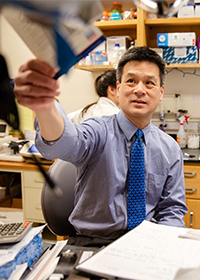
John J. Ngai, Ph.D.
Principal Investigator
E-mail: john.ngai@nih.gov
John J. Ngai, Ph.D., is the Director of the NIH’s Brain Research Through Advancing Innovative Neurotechnologies® (BRAIN) Initiative. Dr. Ngai earned his bachelor’s degree in chemistry and biology from Pomona College, Claremont, California, and Ph.D. in biology from the California Institute of Technology (Caltech) in Pasadena. He was a postdoctoral researcher at Caltech and at the Columbia University College of Physicians and Surgeons before starting his faculty position at the University of California at Berkeley prior to joining NIH in 2020. Dr. Ngai has trained over 20 undergraduate students, 24 graduate students and 15 postdoctoral fellows in addition to teaching well over 1,000 students in the classroom. His work has led to the publication of more than 80 scientific articles in some of the field’s most prestigious journals and 10 U.S. and international patents.
Dr. Ngai has received many awards including from the Sloan Foundation, Pew Charitable Trusts, and McKnight Endowment Fund for Neuroscience. As a faculty member, Dr. Ngai served as the director of Berkeley’s Neuroscience Graduate Program and Helen Wills Neuroscience Institute. He also provided extensive service on NIH study sections, councils and steering groups, including as previous co-chair of the NIH BRAIN Initiative Cell Census Consortium Steering Group. Dr. Ngai currently oversees the long-term strategy and day-to-day operations of the NIH BRAIN Initiative as it strives to revolutionize our understanding of the brain in both health and disease.
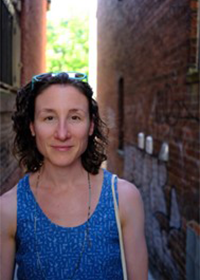
Whitney E. Heavner, Ph.D.
Staff Scientist
E-mail: whitney.heavner@nih.gov
Dr. Heavner received her Ph.D. in Genetics and Molecular Biology from the University of North Carolina, where she worked in the lab of Dr. Larysa Pevny investigating transcriptional regulation of retinal development using mouse genetics as a primary tool. Enamored with gene regulation and neural development, Dr. Heavner then joined the labs of Dr. Susan McConnell and Dr. Gill Bejerano at Stanford University to study cortical development from a genome-wide perspective.
While at Stanford, Dr. Heavner received one of the inaugural Stanford Neurosciences Institute Interdisciplinary Scholar Awards, which allowed her to explore neuroscience, writing, and teaching more broadly. Increasingly interested in synaptic plasticity, Dr. Heavner then traveled up to Seattle Children's Research Institute to work in the lab of Dr. Stephen E. P. Smith, where she studied the roles of synaptic scaffolding proteins in neural activity and Autism Spectrum Disorders. Dr. Heavner has come full circle, back to her neural progenitor roots, to help lead the lab of Dr. John Ngai (Molecular Neurobiology Section), investigating signaling pathways important for neural regeneration during homeostasis and after injury.
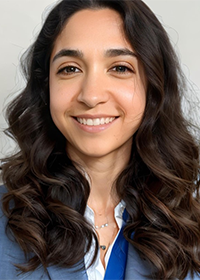
Dana Bakalar, Ph.D.
Research Fellow
Email: dana.bakalar@nih.gov.
Dr. Bakalar works on neuronal regeneration in the olfactory epithelium using a variety of cutting-edge single-cell analysis techniques and more traditional techniques like immunohistochemistry and in-situ hybridization. Dana received her B.A. in Psychology (magna cum laude) from Bryn Mawr College, working with Dr. Earl Thomas on the role of central amygdala in contextual fear. In 2015, she received her Ph.D. in Behavioral Neuroscience from The Graduate Center, City University of New York, working with Drs. Phil Ziegler and Paul Feinstein to produce and characterize a knockout mouse lacking brainstem whisker patterning. Following graduation, Dana studied the development of the cortex in the absence of placentally produced allopregnanolone with Dr. Anna Penn at Children’s National Medical Center, and the roles of the neuropeptide PACAP in development and behavior with Dr. Lee Eiden at NIMH.
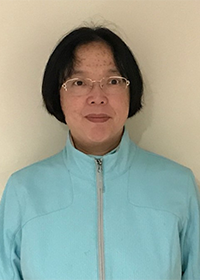
Zhouhong (Amy) Cao, Ph.D.
Lab Manager
E-mail: zhouhong.cao@nih.gov
Zhouhong (Amy) received her B.S. in Biochemistry and Molecular Biology from Tongji Medical College, Huazhong University of Science and Technology, Wuhan, P R China and her Ph.D. in Biochemistry and Molecular Biology from Peking Union Medical College, Tsinghua University, Beijing, P R China. Before joining in the Molecular Neurobiology Section at NINDS, she worked in the cell sorter core facility at NIAID. As lab manager, she provides daily technical assistance to other scientists in the lab as necessary to facilitate their experiments. She also plays a role in developing cell-based assays for understanding the roles of transcription factors and other signaling molecules in regulating olfactory stem cell-mediated regeneration.
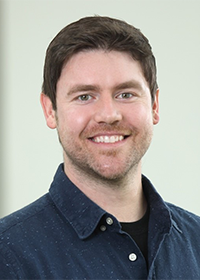
Jonathan Lovas, Ph.D.
Postdoctoral Fellow
Email: jonathan.lovas@nih.gov
Jonathan completed his undergraduate degree at UC Berkeley where he majored in Molecular/Cell Biology and Psychology. After post-baccalaureate work at the EPFL and Stanford studying Parkinson’s disease and UCSF studying cardiovascular regeneration, Jonathan completed his Ph.D. at Columbia University where he characterized the functional regeneration of the nervous system of Hydra vulgaris. In his post-doctoral work at the NINDS, Jonathan is using genetic and single nucleus/single cell epigenomic and transcriptomic methods to explore stem cell state and fate decisions mediating regeneration of the olfactory epithelium.
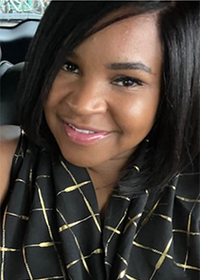
Brittany Brooks
Graduate Student, NIH/Howard University GPP
Email: brittany.brooks2@nih.gov
Hailing from Charleston, South Carolina, Brittany embarked on a remarkable journey in biomedical science. Her passion for the field ignited during high school through the NIDDK Short-term Research Experience Program to Unlock Potential (STEP-UP). This early exposure paved the way for her to conduct research at prestigious institutions such as the Medical University of South Carolina, Johns Hopkins University, Middle Tennessee State University, and Vanderbilt University, all facilitated by the NIDDK STEP-UP for Undergraduates program.
Graduating with a Bachelor of Science in Biology, specializing in Cellular and Molecular Biology in Spring 2007, she then transitioned into roles as a Research Assistant and Laboratory Manager at the Medical University of South Carolina. Inspired by her experiences volunteering with the Salybia Mission Project in Dominica, seeing the U.S. Navy Hospital Ship provide critical care to a third world country, Brittany enlisted in the United States Navy as a Hospital Corpsman, concluding her service at Walter Reed National Military Medical Center in 2020.
Furthering her academic pursuits, she pursued a graduate degree at Howard University, delving into Neurobiology Advanced coursework at the Marine Biology Institute in Woods Hole, Massachusetts. She was awarded her IRTA Fellowship in Spring 2022 allowing her to complete her PhD Research at NINDS. Presently, Brittany's research focuses on exploring the role of the Wnt signaling pathway in injury-induced regeneration of the olfactory epithelium, driven by her passion for stem cell culture manipulation.
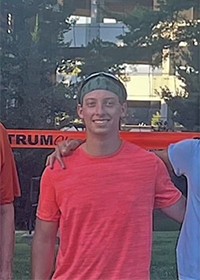
Andrew Walsh
Postbaccalaureate Fellow
Email: andrew.walsh@nih.gov
Andrew is a 2nd year post-bac fellow in the Molecular Neurobiology Section. He received his B.S. in Biology with a minor in Behavioral Neuroscience from Stockton University, where he was involved in the research in three independent labs. His current work is focused on investigating the genetic interactions in the PI3K/AKT/mTOR pathway and how they may affect neurogenesis within the olfactory epithelium following acute injury. Outside of the lab, he enjoys working out, playing sports, and trying new restaurants around the city.
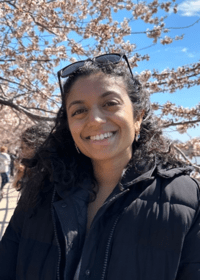
Divya Kunda
Postbaccalaureate Fellow
Email: kunda.divya@nih.gov
Divya is a postbac studying the transcriptional regulators underlying the cell fate decisions of the horizontal basal cells (HBCs) before and in response to injury. Her project aims to identify the key factors driving neuronal fate specification in activated stem cells. Divya is also interested in understanding the molecular mechanisms involved in the ability of HBCs to rapidly respond to injury. After graduating from the University of Washington, Seattle, in 2020 with a B.S. in Biology, Divya began her NIH postbac in the fall of 2021, with plans to move on to a graduate program in Neuroscience. In her free time, Divya enjoys drawing, hiking, and hanging out with friends.
Lab Alumni
- Catie Kaneshiro (Summer Student 2023, Pomona College)
- Chloe Zhao (Summer Student 2023, Brown University)
Lab Timeline

